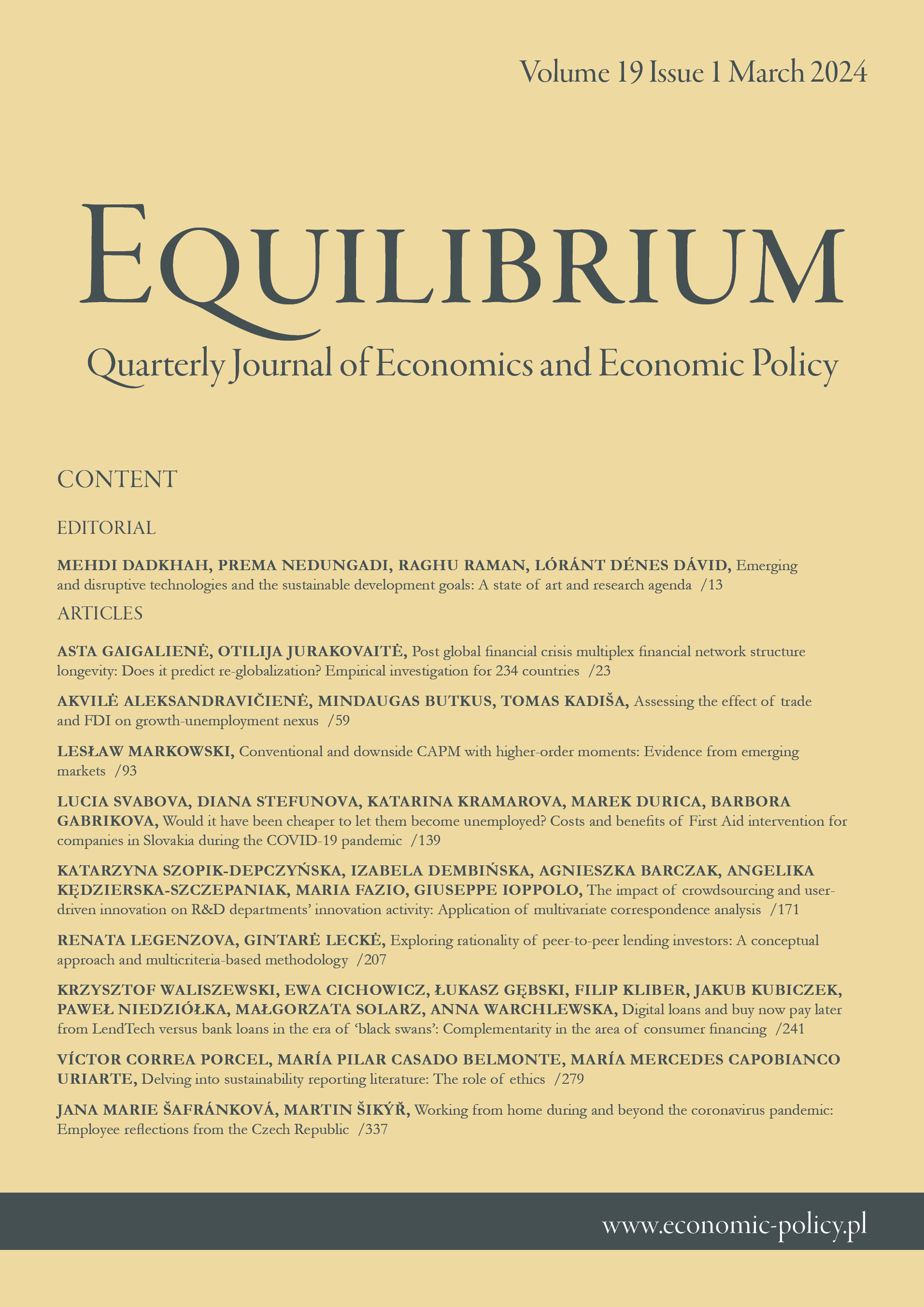FISCAL COUNCILS AS AN ELEMENT OF THE CONCEPT OF FISCAL GOVERNANCE IN THE EUROPEAN UNION MEMBER STATES
IF 5
Q1 ECONOMICS
Equilibrium-Quarterly Journal of Economics and Economic Policy
Pub Date : 2016-12-28
DOI:10.12775/EQUIL.2016.030
引用次数: 1
Abstract
Fiscal governance is defined as a combination of institutions, rules and norms that structure good governance in the area of fiscal policy. It can be named as the specific mechanism of coordination by using of tools such as: budgetary procedures (legislative fiscal rules), fiscal rules (numerical) and independent fiscal institutions/ fiscal councils. Fiscal governance focuses on how the fiscal policy is planned, approved, conducted and monitored, including the involvement of not only public bodies, but the business sector and civil society too. In this study, particular attention was paid to capturing the essence of the relationship between the qualitative elements of fiscal councils activity and its impact on stabilizing the public finances in the view of fiscal governance concept. During the last world crisis in the EU countries, an interest in establishing fiscal councils has increased. Before 2008 there were only seven institutions in the EU, while in 2014 there are already 19. The question is - are these institutions efficient in stabilizing public finances? Therefore, the main objective of the article is the assessment of the role of the fiscal councils in the coordination of the fiscal policy in the EU Member States. The conducted analysis verifies this role on the basis of theoretical deliberation of the current state of the art. The empirical research verifies fiscal councils’ dependence on fiscal balance of EU countries. Research was conducted on the basis of the European Commission, Eurostat and International Monetary Fund data sets.财政委员会作为欧盟成员国财政治理概念的一个组成部分
财政治理被定义为在财政政策领域构建良好治理的制度、规则和规范的组合。它可以被命名为具体的协调机制,通过使用工具,如:预算程序(立法财政规则),财政规则(数字)和独立的财政机构/财政委员会。财政治理的重点是财政政策如何规划、批准、实施和监督,不仅包括公共机构的参与,还包括商业部门和公民社会的参与。在这项研究中,特别注意从财政管理概念的角度把握财政委员会活动的质量因素与其对稳定公共财政的影响之间关系的本质。在欧盟国家的上一次世界危机期间,建立财政委员会的兴趣有所增加。2008年之前,欧盟只有7个机构,而2014年已经有19个。问题是,这些机构在稳定公共财政方面是否有效?因此,本文的主要目的是评估财政委员会在协调欧盟成员国财政政策方面的作用。在对当前技术状况进行理论思考的基础上,所进行的分析验证了这一作用。实证研究验证了财政委员会对欧盟国家财政平衡的依赖。研究是根据欧盟委员会、欧盟统计局和国际货币基金组织的数据集进行的。
本文章由计算机程序翻译,如有差异,请以英文原文为准。
求助全文
约1分钟内获得全文
求助全文
来源期刊
CiteScore
9.20
自引率
3.50%
发文量
28
审稿时长
36 weeks
期刊介绍:
Equilibrium. Quarterly Journal of Economics and Economic Policy is a scientific journal dedicated to economics, which is the result of close cooperation between the Instytut Badań Gospodarczych/Institute of Economic Research (Poland) and Polish Economic Society and leading European universities. The journal constitutes a platform for exchange of views of the scientific community, as well as reflects the current status and trends of world science and economy.
The journal especially welcome empirical articles making use of quantitative methods in: Macroeconomics and Monetary Economics, International Economics, Financial Economics and Banking, Public Economics, Business Economics, Labor and Demographic Economics, Economic Development, and Technological Change, and Growth.
Current most preferable topics and special issues:
The economics of artificial intelligence: business potentials and risks;
Digitalization and entrepreneurship in economics;
Sustainable socio-economic development, environmental and ecological economics;
Transition in the energy market (improving energy efficiency, alternative energy sources, renewable energy, energy security).

 求助内容:
求助内容: 应助结果提醒方式:
应助结果提醒方式:


